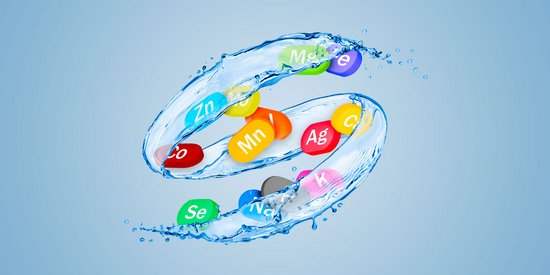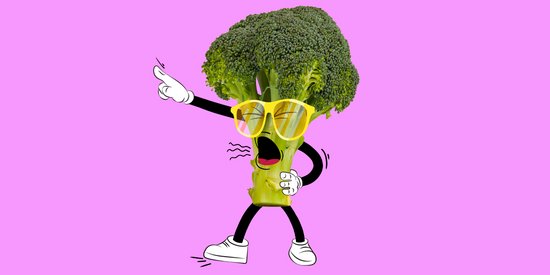Most of these minerals can be found in large quantities on our dinner plates. They are found in large quantities in nature, mainly in river water, lakes and oceans, and below the water table they are found as trace elements (zinc, iodine, sodium, chlorides, sulphur).
There is a second type of mineral salts: the major mineral salts (calcium, potassium, phosphorus, magnesium) of which some are specific to our organisms. Unlike mammals, man does not produce his own mineral intake, he must seek these out in nature. This is why some foods are rich in minerals. Some foods may contain more than one mineral salt at a time.
Here is a non-exhaustive list of the different minerals that are concentrated in foods:
Potassium:
Very useful for the heart muscles and the nerves for concentration.
Found in these foods: It is particularly found in fruits (red fruits, bananas, apricots, figs ...), cloves, parsley, meat, fish, dairy products, eggs, peas, potatoes and cabbage.
Calcium:
Very good for the strength of bone mass and teeth. In postmenopausal women it reduces the risk of osteoporosis.
Found in these Foods: Cheeses, milk (from sheep, goat or cow), kefir, mineral water, spinach, broccoli, sauerkraut
Sulphur:
Sulphur is recommended for hair loss, nails and people with diabetes. It facilitates skin healing as for: dermatoses, eczemas, urticaria, psoriasis.
Found in these foods: Meats like beef, chicken and fish contain sulphur. Legumes, such as beans and jícama or potato peas also contain protein and sulphur. Nuts, almonds, cashews, as well as certain seeds, such as sesame seeds and sunflower seeds, garlic which is also an antibiotic.
Iron:
Very effective for the production and transport of red blood cells as well as the storage of oxygen in the blood.
Found in these foods: Black pudding, liver, white and red meat, bran, wholewheat, peas, fennels and aromatic herbs such as sage, mint, thyme. Finally parsley, spinach, lentils, cabbage, carrots, seeds and some dried fruits (almonds, walnuts, peanuts)
Iodine:
Necessary for physical and cerebral development, it regulates body temperature and the endocrine system.
Found in these foods: Sea fish, wild mussel, seaweed, edam cheese, eggs, rye bread and oatmeal
Selenium:
Antioxidant, it has preventive action against immune diseases, Alzheimer's, cancer and the risk of infarction.
Found in these foods: Fish, meats, eggs, lentils, asparagus, garlic, coconut, sesame
Chlorides:
Combined with sodium, it distributes fluids of the right pressure in the cells of the body
Found in these foods:: coarse salt, bread and pastries, meat
Sodium:
It regulates the content of water and acid which are useful for the contractions of muscles and nerves.
Found in these foods: Meat, fish and lentils
Magnesium :
Magnesium relieves stress and irritability. It preserves bone cells. It is particularly essential for energy intake, so it is recommended for pregnant or breastfeeding women and people with heart. disease.
Found in these foods: raw vegetables, soy milk, chocolate, nuts, oatmeal, hazelnuts, legumes and seeds (pumpkin, flax, sesame)
Phosphorus:
It maintains brain activity. It is the raw material of bones and teeth. Finally, it regulates the fatty acid content.
Found in these foods: dairy products, meat, cold cuts, fish and cereals
Zinc:
Zinc plays an important role in the immune system, it fights against viruses and bacteria it promotes concentration and performance of the senses (sight, smell, touch, hearing, taste). It is recommended for people with intestinal disorders, those who suffer from diabetes and who abuse alcohol.
Found in these foods: red meat, fish, seafood, cereals and legumes
A good diet is not really enough, because the quality of the food we eat deteriorates more and more because of industrial treatments, intensive agriculture, additives and pollutants. In addition, other factors that we are confronted with such as smoking, stress, age, drugs which some cannot do without. To be sure of any vitamin deficiency, take the time to have a blood test and to do a medical check-up.









